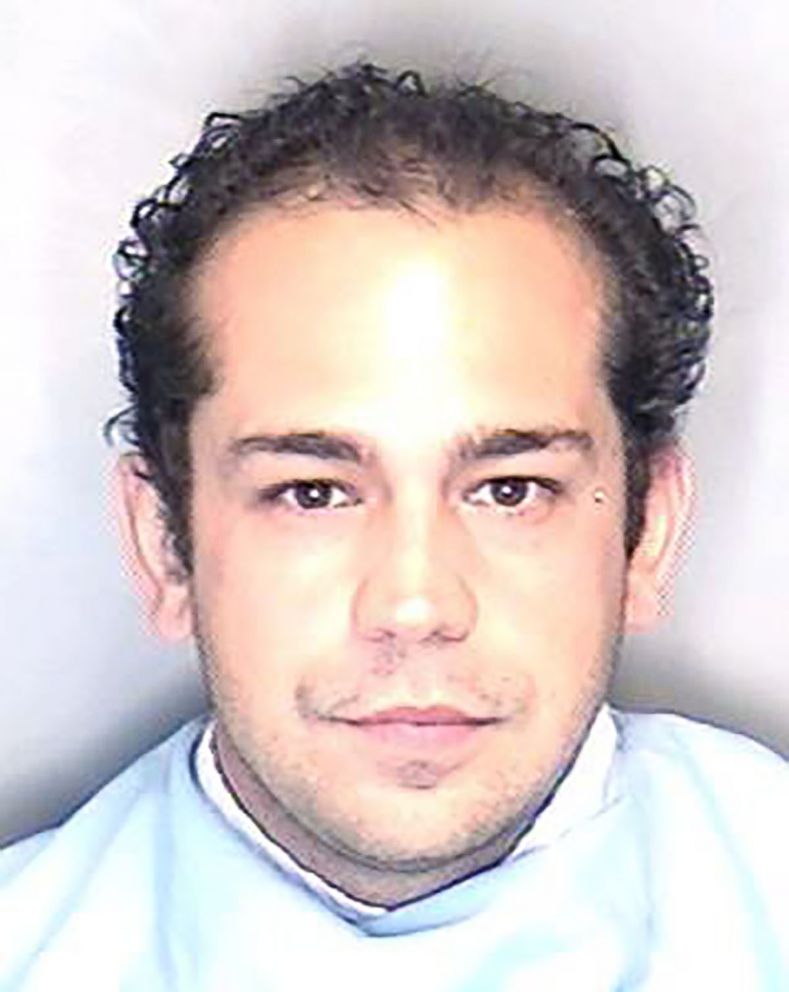Man arrested for 2009 murder of 22-year-old mother through same type of testing that caught 'Golden State Killer' suspect
Michael Henslick was arrested Tuesday for the 2009 murder of Holly Cassano, 22.
A man is in custody for the 2009 killing of a 22-year-old Illinois mother after he was tracked down through the same technology used to catch the suspected "Golden State Killer."
Michael Henslick, accused of killing Holly Cassano in November 2009, was taken into custody without incident Tuesday in the parking lot of a mall in Champaign, the Champaign County Sheriff's Office said at a news conference Wednesday.
Henslick and Cassano both lived in the same community of about 2,000 people when she was killed, and they both had attended the same high school at the same time, the sheriff's office said.

They had mutual friends and acquaintances but that was extent of the relationship, Walsh said.
Authorities never had a tip that indicated Henslick was involved in the killing, the sheriff's office said.
"This case has troubled the sheriff's office for years," Champaign County Sheriff Dan Walsh said at the news conference, adding that Cassano's daughter and mother "have become members of our family."

Henslick was found through Parabon NanoLabs' genetic genealogy testing -- the same type of technology used to arrest the suspected "Golden State Killer" in April.
In Cassano's case, the suspect's DNA was collected at the crime scene and uploaded to genetic genealogy databases for comparison.
The sheriff praised the Parabon technicians' work in the case, saying they "tracked the DNA's ancestors literally back to the 1800s, and from that worked forward to the present, building a family tree."
Once Henslick was identified, investigators obtained samples of his discarded DNA from a cigarette and litter, the sheriff's office said.

Henslick is in custody being held on $10 million bond.
He made his first court appearance Wednesday, during which he was appointed a public defender. He requested a preliminary hearing and is set to appear in court on Sept. 18, according to court records.
Henslick has a criminal history but had not submitted a required DNA sample to law enforcement, authorities said at the news conference.
His first conviction was in 2009 -- around the time of Cassano's murder -- and he was placed on first offender probation for a possession of controlled substances charge, authorities said. He was not required to submit a DNA sample, authorities said.
In 2015 Henslick was arrested at a traffic stop after he was found in possession of drugs, but he then failed to appear in court numerous times, authorities said.
He was convicted and placed on standard probation and ordered to submit a DNA sample, however he never appeared at the probation office and was considered an absconder, authorities said. Ultimately Henslick was re-sentenced to more probation, and he again failed to appear at the probation office and comply with court orders, authorities said.
A petition to revoke Henslick's probation was issued; the case is pending and he appeared in court on Monday for that matter, authorities said.
Henslick also appeared in court Monday for two pending felony domestic violence cases, authorities said, adding that in those matters he had repeated failures to appear.
Multiple arrests have been made throughout the country this year through genetic genealogy technology, in which investigators can cast a wide net, searching distant relatives of an unknown suspect by analyzing the DNA submitted voluntarily to a genetic genealogy database, according to CeCe Moore, chief genetic genealogist with Parabon NanoLabs.
This allows police to create a much larger family tree than using law enforcement databases like CODIS, in which an exact match is needed in most states, Moore said.
Genetic genealogy "is a major game-changer" for cold cases, Moore told ABC News earlier this year, "because in a genetic genealogy database we can reverse engineer the [suspect's family] tree from their distant cousins who have tested."
"So it doesn't matter that they haven't had their DNA tested through another arrest or crime scene, we don't need their DNA," she said. "We need somebody from their family to have tested in order to resolve these cases."